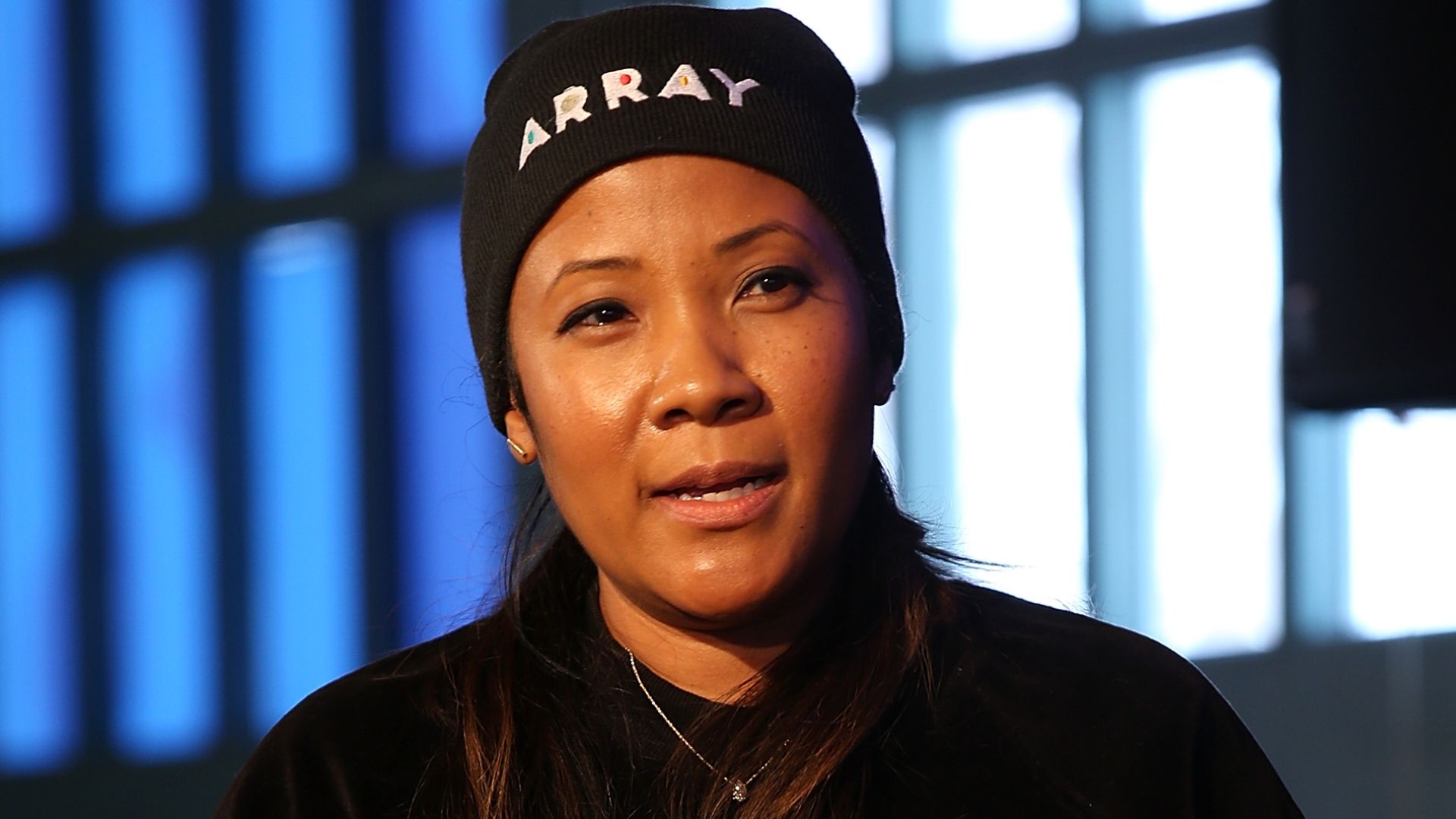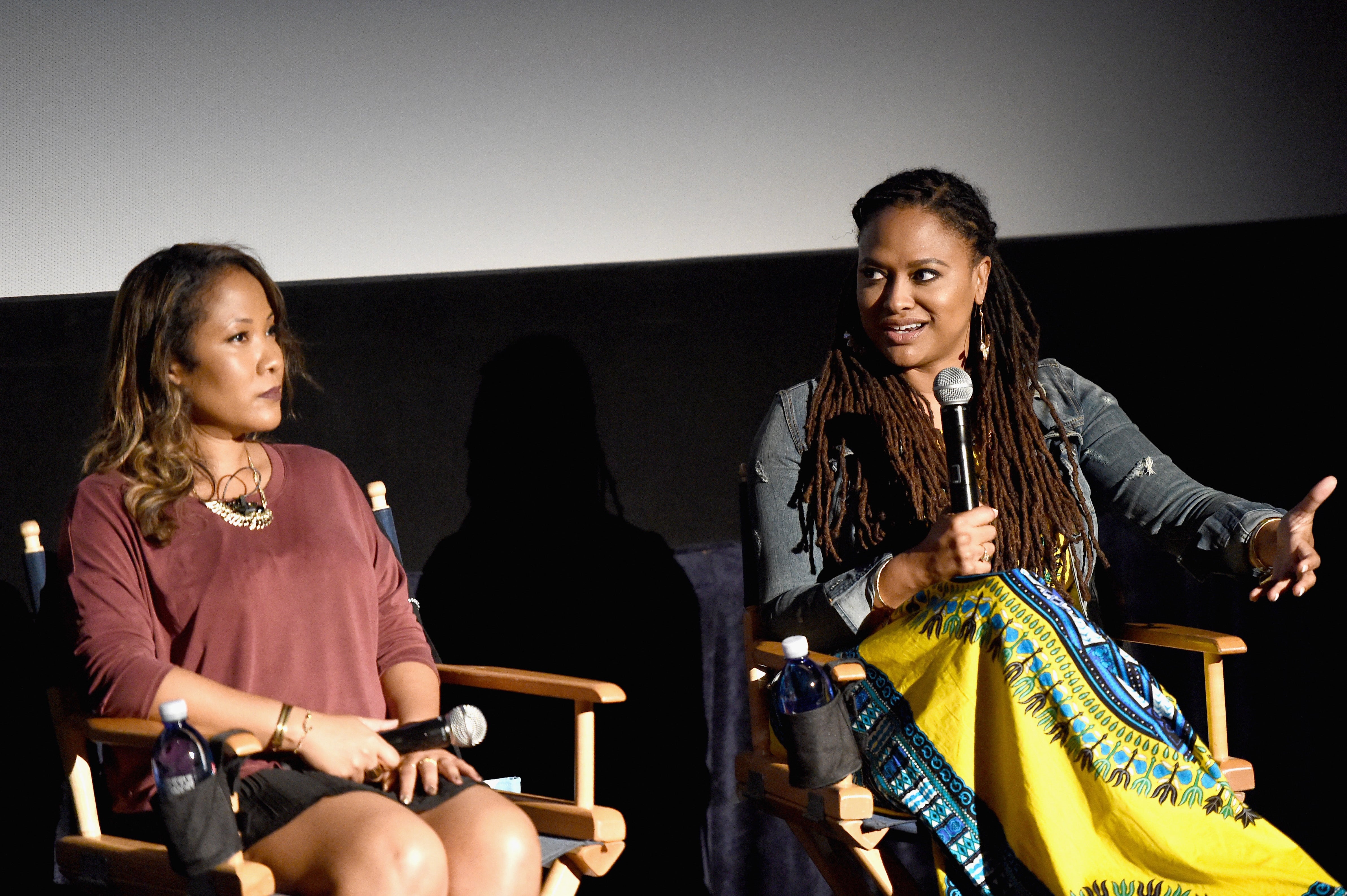
Beside every great woman is another great woman, and that’s what Oscar-nominated director, Ava DuVernay has in her Vice President, Tilane Jones who oversees Array, DuVernay’s film distribution company and arts advocacy collective.
Array, was founded in 2010 during Sundance Film Festival to create distribution opportunities for Black filmmakers to get their work in front of audiences. AMC Independent was Array’s first distribution partner with I Will Follow playing at 22 theaters. “Which was huge at the time for an independent film by Black a filmmaker about a black woman,” shared Jones.
She has worked with DuVernay for more than a decade, starting as an office assistant with The DuVernay Agency and now she oversees the growth of DuVernay’s multimedia empire in the Echo Park area of Los Angeles. The company includes the distribution arm, post-production facilities, the Queen Sugar writers’ room and a new 50-seat theater that will screen Array films and feature work from local filmmakers.
Since then Jones has served as a producer on the Oscar-Nominated film Selma, four-time Emmy-winning film 13TH, Middle of Nowhere, and I Will Follow. Ahead, Jones shares with ESSENCE how she was able to transition into the entertainment industry and what she’s learned since working with Array and its impact on Black filmmakers.
ESSENCE: What is the career path that led you to work in the entertainment industry?
JONES: I moved to Los Angeles on my own. I began working for a real estate property management company as an office manager and then eventually got my real estate license. I’ve always worked for small businesses and independent businesses. Then I began working for mortgage brokers and became a senior loan processor, and then the market crashed. I started working as an independent contractor, still doing my role, but just independently. Then a good friend of mine said that she went to school with someone who was looking for an office manager for their publicity and marketing company and that person just happened to be Ava DuVernay. I was hired 11 years ago, and it has only progressed from there. I started working with Ava after she had just finished her first documentary film, This is the Life, so she was entering into becoming a filmmaker at the same time that I began working with her at the PR marketing firm.

ESSENCE: Since coming from the real estate industry into publicity, what was it about the entertainment business that piqued your interest and made you want to keep working in that world?
JONES: I was definitely a fan of entertainment. Yet at the same time with Ava’s vision and her drive, I was just really fortunate with how I came into the industry, I was able to work with an independent practice practitioner who already knew the business. I had the perfect environment to transition into a new industry and bring the skills I had already garnered. Working with mortgage lending is very similar to being a producer because you’re working with a lot of people and with budgets. I think we were all kind of learning, especially about the distribution portion of everything. When I first started, digital had just begun to take off. Netflix had gone from [DVD distribution success] to [streaming-focused]. Blockbuster Video, and things like that were leaving.
ESSENCE: How do you feel about being a part of an organization whose mission is to help other Black women and women of color in this industry?
JONES: I feel honored to be a part of it. It’s apart of Ava’s personality and a part of my personality to serve. I feel honored to be able to do that and to see the impact. I think that it is important too because she knew from the very beginning that there wouldn’t be a studio that would want to distribute her work and how important distribution was just from being in PR/marketing at a major film studio. She knew that part of it and what was lacking to be able to be that conduit and step in and fill those spaces that we need to fill. That’s an amazing feeling.
ESSENCE: What’s the biggest lesson you’ve learned from Ava DuVernay since working with her?
JONES: I think the biggest lessons that I’ve learned is to do the work. We can’t wait for other people to do that work. I believe in one of the most famous lines that she has is about building your own door, building your own house and walking through that door. You just can’t take the first ‘no.’ There’s always a way to find your way around it, and sometimes that does take building it on your own.
ESSENCE: What advice can you give women who want to get their foot in the door in entertainment?
JONES: I think the one thing that I would say to them is that it’s never too late to change careers if that’s what you’re passionate about. You have to make sure that it is your passion because it is going to be hard work no matter what. Let’s invest in ourselves, especially as, Black women and knowing that it’s worth it to take that challenge or take a new direction, to do what you want to do, whether that’s in entertainment or in any industry. Then, specific to the entertainment biz is just knowing the industry and knowing where you can fit in. It’s not only directors and writers and producers, but there’s a whole list of different crew jobs that you could be doing and knowing what those are and honing into that. To know that a lot of the skills that you have are transferable; in the film and television world, it’s a business. Those positions that are available in other industries are also available here. It’s just really kind of honing in and figuring out where that is, and how you can be most impactful.




